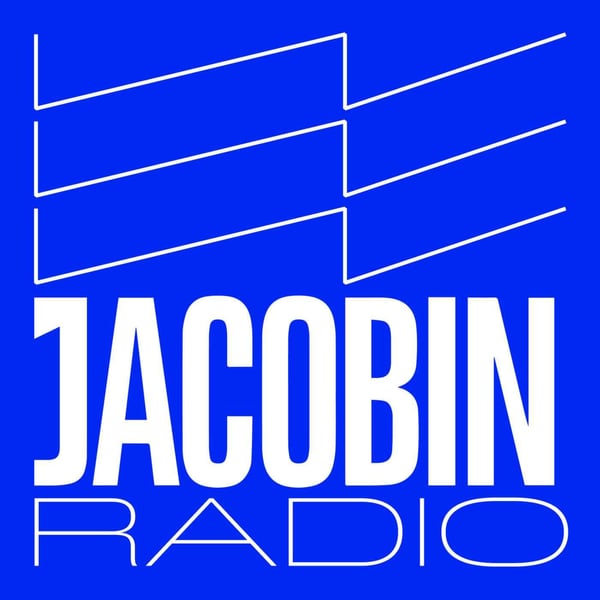The Dig: Lisa Duggan on the Open Secret of Sexual Assault
Jacobin Radio
Jacobin
4.7 • 1.5K Ratings
🗓️ 6 October 2018
⏱️ 45 minutes
🧾️ Download transcript
Summary
Christine Blasey Ford and other women have revealed that our political-economic elite is pervaded by profound intimate violence, forms of brutal interpersonal domination that are the everyday and microcosmic connective tissue of systems of domination as a whole. Lisa Duggan offers her thoughts on how to link these individual stories that playing out at economic, political and celebrity peaks to the systems that order the world that the rest of us live in. Duggan also addresses carceral feminism and how "believe women" obscures the way that gender and sexuality are embedded in political and economic structures. Plus, she rethinks her controversial blog post about Avital Ronell in response to grad student critics.
Thanks to Verso Books. Check out their huge catalogue of left-wing books at versobooks.com
And please support this podcast with your money at Patreon.com/TheDig
Hosted on Acast. See acast.com/privacy for more information.
Transcript
Click on a timestamp to play from that location
| 0:00.0 | This episode of The Dig is brought to you by our listeners who support us at patreon.com and by Verso Books, which has loads of great left-wing titles perfect for dig listeners like you. |
| 0:13.0 | One that you might like is Lights in the Distance, Exile in Refuge at the Borders of |
| 0:17.9 | Europe by Daniel Trilling. |
| 0:20.5 | A mother puts her children into a refrigerator truck and asks, |
| 0:24.6 | what else could I do? A runaway teenager comes of age on the streets, |
| 0:29.5 | sleeping in abandoned buildings. A student leaves his war-ravaged country behind because he |
| 0:35.7 | doesn't want to kill. Everyone among the thousands of people who come to Europe in |
| 0:40.9 | search of asylum each year possesses a unique story. |
| 0:44.9 | But those stories don't end as they cross into the west. |
| 0:49.1 | In lights in the distance, acclaimed journalist Daniel Trilling, draws on years of reporting to build a portrait of |
| 0:55.8 | the refugee crisis as seen through the eyes of the people who experienced it firsthand. |
| 1:02.0 | As the European Union has grown, so has a tangled and often violent system designed to filter |
| 1:07.2 | out unwanted migrants. |
| 1:10.2 | Visiting camps and hostels, sneaking into detention centers, |
| 1:13.9 | and delving into his own family's history of displacement. |
| 1:17.6 | Trilling weaves together the stories of people he met |
| 1:20.0 | and followed from country to country. In doing so he shows that the terms |
| 1:24.7 | commonly used to define them, refugee or economic migrant, legal or illegal, |
| 1:31.2 | deserving or undeserving, fall woefully short of capturing the complex realities. |
| 1:37.8 | The founding story of the EU is that it exists to ensure the horrors of the 20th century are |
| 1:42.4 | never repeated. |
| 1:44.2 | Now, as it comes to terms with the worst refugee crisis since the Second World War, |
... |
Please login to see the full transcript.
Disclaimer: The podcast and artwork embedded on this page are from Jacobin, and are the property of its owner and not affiliated with or endorsed by Tapesearch.
Generated transcripts are the property of Jacobin and are distributed freely under the Fair Use doctrine. Transcripts generated by Tapesearch are not guaranteed to be accurate.
Copyright © Tapesearch 2025.

